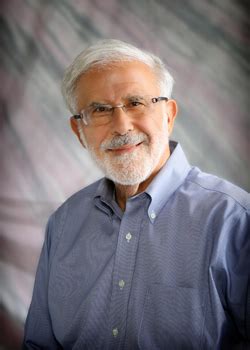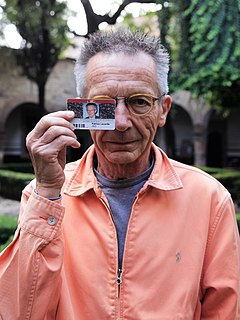A Quote by Lloyd Levitin
A masterfully written text for the M&A student and professional: clear, concise, comprehensive, practical, and insightful.
Quote Topics
Related Quotes
I think whether you are a judge on my court or whether you are a judge on a court of appeals or any court, and lawyers too - and if you're interested in law yourself, you'll be in the same situation - you have a text that isn't clear. If the text is clear, you follow the text. If the text isn't clear, you have to work out what it means. And that requires context.
So long as mathematicians can impose up-and-down semantics upon students while trafficking personally in the non-up-and-down advantages of their concise statements, they can impose upon the ignorance of man a monopoly of access to accurate processing of information and can fool even themselves by thought habits governing the becoming behavior of professional specialists, by disclaiming the necessity of, or responsibility for, comprehensive adjustment of the a priori thought to total reality of universal principles.
The Prodigal Son story is, I think, the greatest short-story ever written. It has such drama in it, such great characters, it's so clear and concise, and it's entertaining in the sense that everyone can relate to it. But you have no doubt what our Lord was trying to communicate in the heart of that story. So the truth was not sacrificed on the altar of entertainment in that case. And it can be.
The framers of the constitution employed words in their natural sense; and, where they are plain and clear, resort to collateral aids to interpretation is unnecessary, and cannot be indulged in to narrow or enlarge the text; but where there is ambiguity or doubt, or where two views may well be entertained, contemporaneous and subsequent practical construction is entitled to the greatest weight.
No matter how clear things might become in the forest of story, there was never a clear-cut solution, as there was in math. The role of a story was, in the broadest terms, to transpose a problem into another form. Depending on the nature and the direction of the problem, a solution might be suggested in the narrative. Tengo would return to the real world with that solution in hand. It was like a piece of paper bearing the indecipherable text of a magic spell. It served no immediate practical purpose, but it contained a possibility.
I read the text; and then I come to the Shirat ha-Yam, to the Song of the Sea [Exodus 15], to the poetry. Who could have written such a poem except someone who went through it? It is so full of life, so full of truth, of passion, of concern. And the thousands and thousands of commentaries in the Talmudic tradition that have been written on it. It had to have happened. But even if not, I would attribute the same beauty to the text as I do now.
With Orff it is text, text, text - the music always subordinate. Not so with me. In 'Magnificat,' the text is important, but in some places I'm writing just music and not caring about text. Sometimes I'm using extremely complicated polyphony where the text is completely buried. So no, I am not another Orff, and I'm not primitive.



































